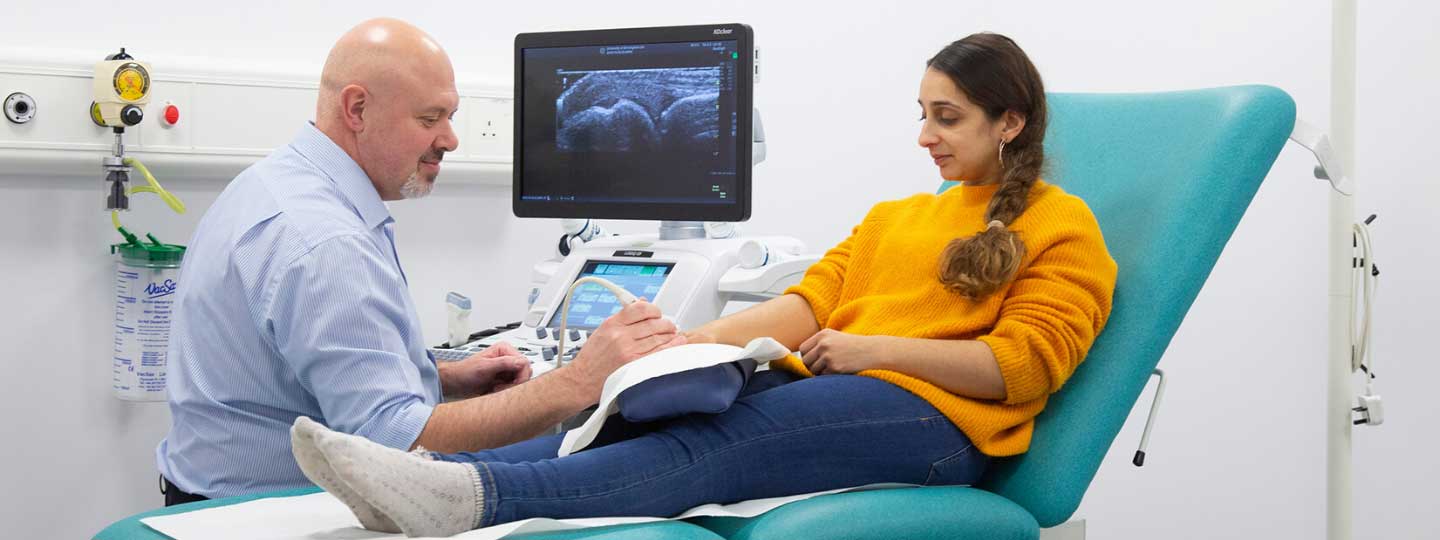Genetics and genomics help to predict and treat arthritis
03 March 2020
We know arthritis is not caused by a single gene, but by a combination of genetic and environmental or lifestyle factors (such as diet or exercise). Genomics helps us to make sense of this complexity and better understand arthritis.
What’s the focus of our research?
The Centre for Genetics and Genomics Versus Arthritis is looking at improving our understanding of the role of genetics in determining whether certain people are at risk of developing arthritis and what happens when they do.
The centre focuses on inflammatory arthritis, in particular rheumatoid arthritis, psoriatic arthritis and juvenile idiopathic arthritis.
They’re working towards two main goals:
1. Improving the prediction, prevention and treatment of arthritis
This includes looking for genetic markers that can tell us the likelihood of someone developing arthritis and how the condition will progress.
The team will use this information to help improve patient care and treatments.
2. Identifying genes and biological pathways that lead to arthritis
This includes better understanding how genetic changes lead to changes in how the immune system works, and how this can lead to inflammatory arthritis.
This information could help develop new drug treatments or help to see if existing drugs used for other conditions could be effective in treating arthritis (re-purposing).
What have researchers found?
Over the years, researchers have made some exciting developments to help people with arthritis, including:
Helping people to stick to their medication for rheumatoid arthritis
Methotrexate is commonly prescribed for people with rheumatoid arthritis, however studies suggests around 40% of patients do not take it correctly, meaning it is not effective.
Researchers have developed a test that can detect methotrexate levels in the blood.
The test is currently in a feasibility study to review if it will help patients stick to their medication and ultimately improve their quality of life.
A better way to assess joint swelling
Doctors normally assess joint swelling in rheumatoid arthritis using a series of tests, that combine to give the Disease Activity Score (DAS), to help decide what treatment is needed.
Researchers studied how accurate this scoring system is and found that only two of the measures gave a reliable picture, including testing for a marker of inflammation in the blood. They have therefore made relevant adjustments to the system and these changes to testing can be used to improve patient care in the future.
Understanding complex genomic data to help develop treatments
Genomic analysis produces large amounts of complex data, meaning researchers need to develop tools to study and interpret the information.
The team have developed computer software to help analyse and understand the wealth of valuable DNA data. It’s hoped this analysis can help re-purpose existing drugs for the treatment of inflammatory arthritis.
A collaborative effort
The research centre also contributes to a number of large, collaborative studies with other researchers.
This includes:
- MATURA, a joint effort between academic groups and industry partners to identify and test biomarkers for rheumatoid arthritis.
- The BRAGGSS study which evaluates the role of genetic (and other) factors in a patient's response to biologic treatments (such as anti-TNF), to help better understand why not all patients respond, and help target drugs to patients who will.
The research skills and expertise of centre staff, together with their network of collaborators has allowed the Centre for Genetics and Genomics Versus Arthritis to develop an international reputation for high quality research in inflammatory arthritis.
Find the support you need
We’re here whenever you need us. If you want help, support or information – get in touch.
- Call our helpline on 0800 5200 520 (Monday to Friday, 9am to 6pm)
- Talk to our arthritis virtual assistant, 24/7
- Join our online community
- Follow us on Twitter, Facebook and Instagram.